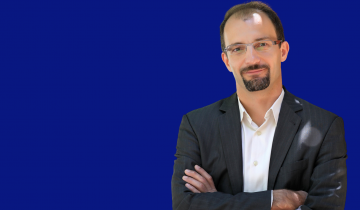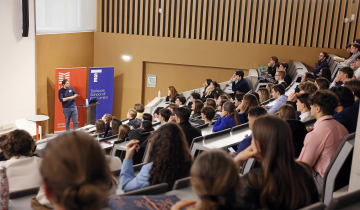Yifei Zhang soutiendra publiquement ses travaux de thèse intitulés : «Three Essays on Corporate Innovation and Shareholder Activism ».
Jeudi 9 juin 2022, à 15h00 Auditorium 3 et Zoom.
Pour obtenir le lien zoom, merci de faire votre demande auprès du secrétariat Elvire Jalran
Directeur de thèse : Professeur Ulrich HEGE
Les membres du jury :
- Ulrich HEGE UT1 Capitole - Toulouse School of Economics Directeur de thèse
- Florian EDERER Yale University Rapporteur
- Merih SEVILIR Indiana University Rapporteure
- Edith GINGLINGER Université Paris-Dauphine Examinatrice
- Milo BIANCHI UT1 Capitole - Toulouse School of Economics Examinateur
Résumé (en anglais) :
The first chapter studies whether and how corporate venture capital (CVC) spurs changes in firm scope. Using two sets of firm scope metrics, a text-based emerging business measure and Compustat segment measures, I document that CVC investments are strongly associated with subsequent firm scope changes of the CVC corporate parent, including seeding emerging businesses, establishing new divisions, terminating obsolete divisions, and changing the primary industry. Further evidence is consistent with an experimentation view of CVC investments, with more promising ventures having a stronger impact on scope changes of parent firms. Finally, to sharpen the causality, I explore idiosyncratic fund inflow shocks of those connected independent VCs for each CVC program, as well as the US non-stop airline routes. In the second chapter, we investigate the impact of hedge fund activism on corporate transaction markets. We find that activism targets as well as firms exposed to hedge fund threats receive more merger bids, increase divestitures and make fewer acquisitions, with the acquisition effect concentrated among large firms. We document that the majority of activist campaigns are clustered by industry, and estimate that the simultaneous increase in asset sales and decrease in acquisitions in such activism clusters reduce real asset liquidity for asset sellers by about 35%. The liquidity squeeze produces two effects: transaction prices are reduced, and industry outsiders provide liquidity by purchasing more industry assets. Looking at short-term price pressure and long-run performance, we present evidence that transactions by activist targets are less affected by the reduced asset liquidity than those of other firms. The third chapter investigates which kind of targeted firms benefit the most from hedge fund activism campaigns. I first document that ex-ante better governance firms experience larger value and performance improvements after activism campaigns. Moreover, good governance firms operating in relatively competitive industries benefit the most from hedge fund activism campaigns among all targeted firms. Both results are counter-intuitive since ex-ante good governance firms operating in relatively competitive industries should suffer the least from agency costs and have already operated on the industry efficiency frontier. As a result, further value improvements should be minimal. I provide a new explanation for the puzzling results through the success likelihood of activist campaigns and value improvement conditional on campaign success.



